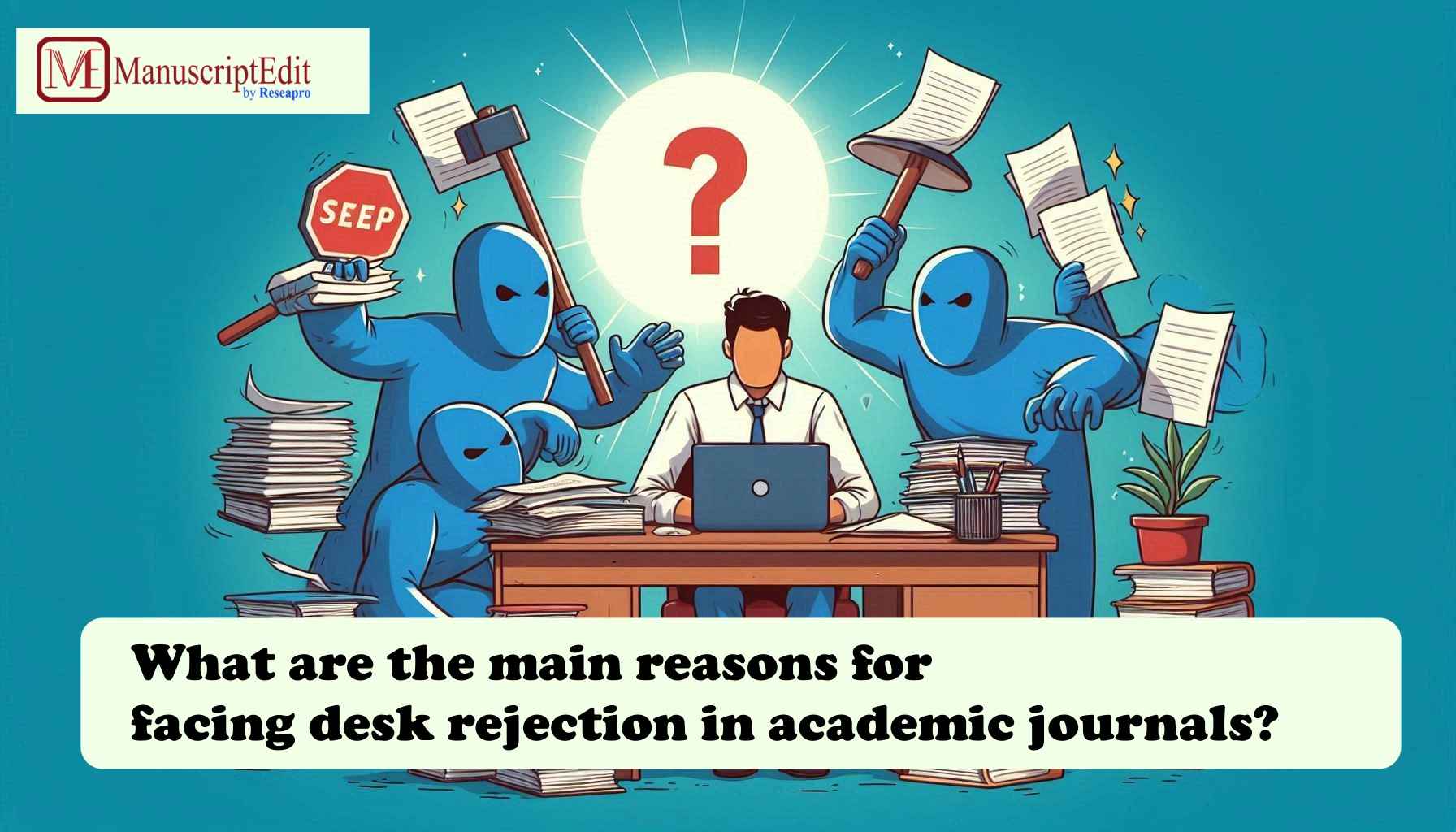There are numerous causes for rejection; however, desk rejection or rejection without peer review is one of the most annoying emails an author gets. It’s not uncommon to have a paper rejected. To decide how to continue from there, you must first understand why the journal editor did not send it out for peer review.
It’s critical to comprehend the reasons behind a rejection before deciding on a strategy. It’s usually simple to extract the criticism about your work from a peer review report and organize your next steps accordingly. It can be more difficult to comprehend why your work was rejected by the journal editor without having been sent out for review. This blog post summarizes the five most prevalent reasons for rejection without peer review to assist you decides on a resubmission strategy.
-
If the manuscript does not meet the journal’s objectives or scope
It’s doubtful that the paper will be approved if it won’t be of interest or value to the journal’s readers. When deciding which magazine to submit to, always read the Aims and Scope to get a sense of the types of papers the journal is searching for. In other words, does your work, beyond its scientific scope, fit the journal’s unique geographical region? Distinct journals have different scopes, which are usually quite narrow. Make sure your manuscript is appropriate for the journal you want to submit it to.
-
If the results of your research were not significant or new enough
Journal editors frequently reject papers without submitting them for peer review because they do not believe the manuscript is appropriate for their publication. If you submit your manuscript to a publication with a diverse audience in terms of expertise, the editor may decide that your study isn’t of sufficient interest to a large enough section of the readership.
It’s also possible that the journal editor isn’t sure that your findings are substantial enough to warrant publication. This implies they may not anticipate their having far-reaching repercussions for your field of study. It is usually also necessary for journals with high journal impact factors if the research is original and has not been published before, even if only in part.
- If plagiarism is too high
Plagiarism should be avoided at all costs. You could be accused of plagiarism if you intentionally or unintentionally plagiarized the work of other researchers. Manuscripts are run through various plagiarism detection software programmed by publications. If there is more than 20% duplication in a manuscript, it will be returned to the authors for editing. The publishers may report the material as plagiarized if that percentage is significantly greater. If you effectively plagiarize your own work by merely repackaging it, you may be called out.
- If your data is inadequately presented, and you applied inappropriate methods
Editors of broad-read journals typically cover a significant percentage of a research field, thus they are unlikely to be specialists in your research topic. As a result, people are likely to skip over your Results section and instead focus on your data when evaluating the quality of your research.
Even if the journal editor is unfamiliar with your research topic, you may expect them to have a strong awareness of what is going on in your field in general. As a result, if they see that you employed an obsolete method or didn’t use a strategy properly, your work will most likely be rejected right away.
- If there are issues with language, writing, and spelling
The document’s language, organization, and any tables or figures must all be of sufficient quality to be examined; if this is not possible, the paper will be rejected. Your abstract, cover letter, references, and, if applicable, your discussion and/or conclusions section are usually of particular interest to journal editors (s). It’s usually a good idea to have someone else look through your paper before you submit it; the second set of eyes can help you catch any mistakes you may have overlooked.
There are other causes for submission rejection, but these are only a few of the most typical issues cited by journals. For busy researchers, it may appear to be a lot of work, and this is where we, ManuscriptEdit may help.
 What are the main reasons for facing desk rejection in academic journals?
What are the main reasons for facing desk rejection in academic journals?


